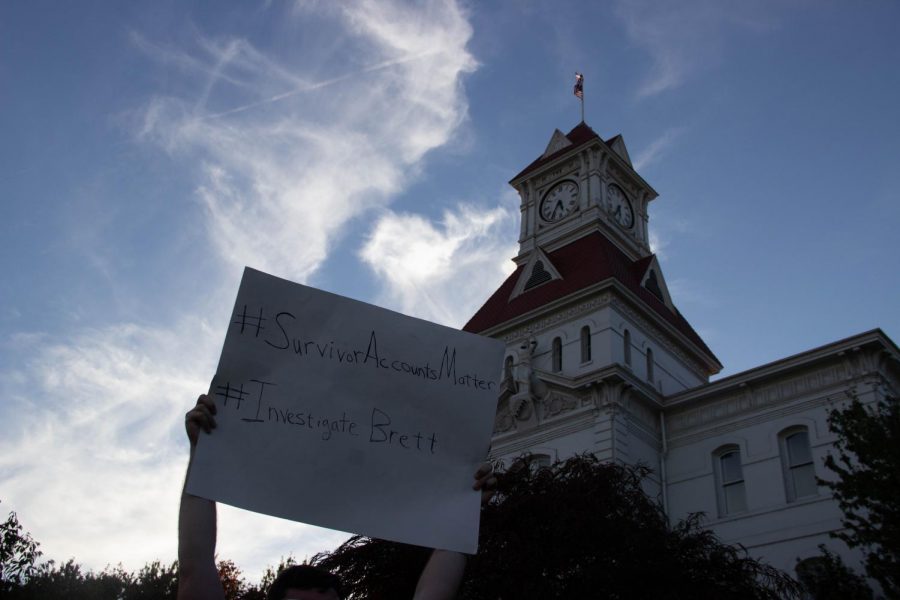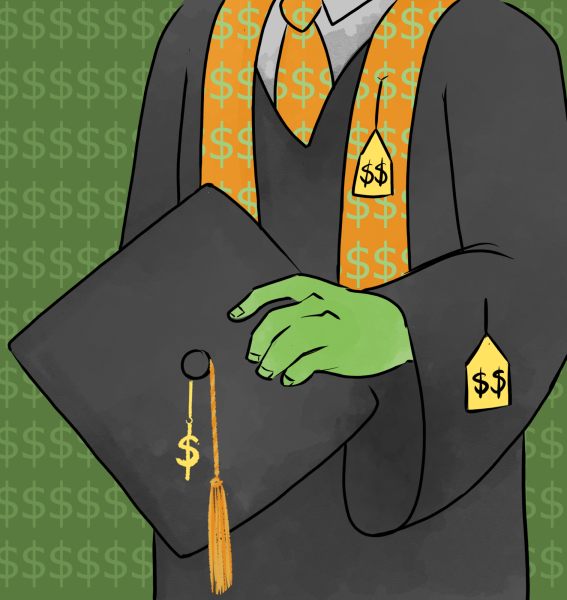Editorial: Ford, survivors should not have to fight to be heard
October 1, 2018
Sexual assault survivors face a steep uphill battle whenever challenging men in power, and the stakes could not be higher as Judge Brett Kavanaugh, professor Christine Ford’s alleged assaulter, was set to assume a seat in the nation’s highest court. As noted in her testimony, Ford said she was terrified to speak out and appear before the Senate judiciary committee to give sworn testimony. Regardless, she proceeded to do so, as she believed it was her ‘civic duty.’
By doing so, she put herself in the most vulnerable position in order to be taken seriously. Yet, U.S. Senator Lindsey Graham went as far to call the entire purpose of the hearings ‘the most unethical sham’ in politics.
As Ford faced competing narratives of being a conniving opportunist versus a hero for the #MeToo movement, the unfortunate reality is that it took a woman placing herself in the most vulnerable and hostile environment politics had to offer, surmounting dismissals in order to get there, for the story of a survivor to be taken seriously. The unshakable earnestness of Ford is a testament to her individual strength. And that strength ultimately empowered other women, noted by the 201 percent uptick in people helped by the National Sexual Assault Hotline during her testimony.
As a result, we have seen an endorsement from the American Bar Association for Brett Kavanaugh withdrawn after Ford’s and Kavanaugh’s hearing, and an opposition voiced by the ACLU. But endorsements should have been withdrawn, or at least questioned, the moment the allegations were known to the public. Waiting until after all the hearings signals that people doubted Ford’s claims to begin with, and that is unacceptable. Survivors should be believed.
Ultimately, the hesitation only serves to make it harder for survivors to come forward. As Senator Patrick Leahy pointed out during the testimonies, the kind of treatment and accusatory questions Ford faced could end up being a signal to survivors not to come forward.
We should at least commit to due diligence to fully investigate into such accusations and withhold endorsements until a thorough investigation is completed. Especially since the stakes involve a lifetime appointment to the Supreme Court.
Even though all that, respect for the process was lacking. During Kavanaugh’s testimony it was evident that he did not care for the process as it applies to him, as a sense of entitlement to that vacant seat became apparent through partisan tirades. Kavanaugh accused the Democrats of a smear campaign fueled by revenge for Hillary Clinton’s loss in 2016.
A nominee engaging in conspiratorial partisan rhetoric was unbecoming of an impartial judge, let alone a Supreme Court nominee. Even if he continually digressed to his accolades to justify his nomination, or leaned on character witnesses calling him ‘a carpool dad,’ none of it had a bearing on the accusations against him.
People in power are not entitled to that power, nor are they entitled to sympathy.
The eventual outcome of this confirmation may go on to define an entire generation. Either way, each person will have to reckon within themselves what it means to believe a survivor and how much will people sacrifice to maintain control over the apparatus of government.
The opinions expressed in this editorial reflects the majority opinion of The Daily Barometer’s Editorial Board.






















































































































